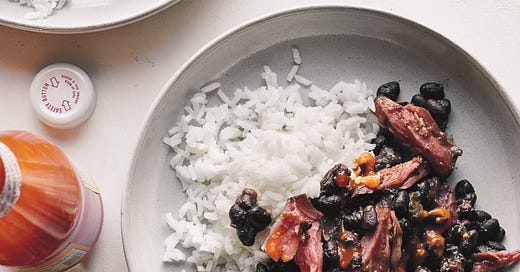See You on Sunday
There are many factors I consider when measuring the success of a cookbook, but ultimately, there's only one that really matters: Does it get you into the kitchen? In my mind, I don't care who wrote it or how trendy the recipes are -- if it convinces you to cook, it's worthy of a James Beard Award. If it inspires you to pan-fry a chicken breast instead …





